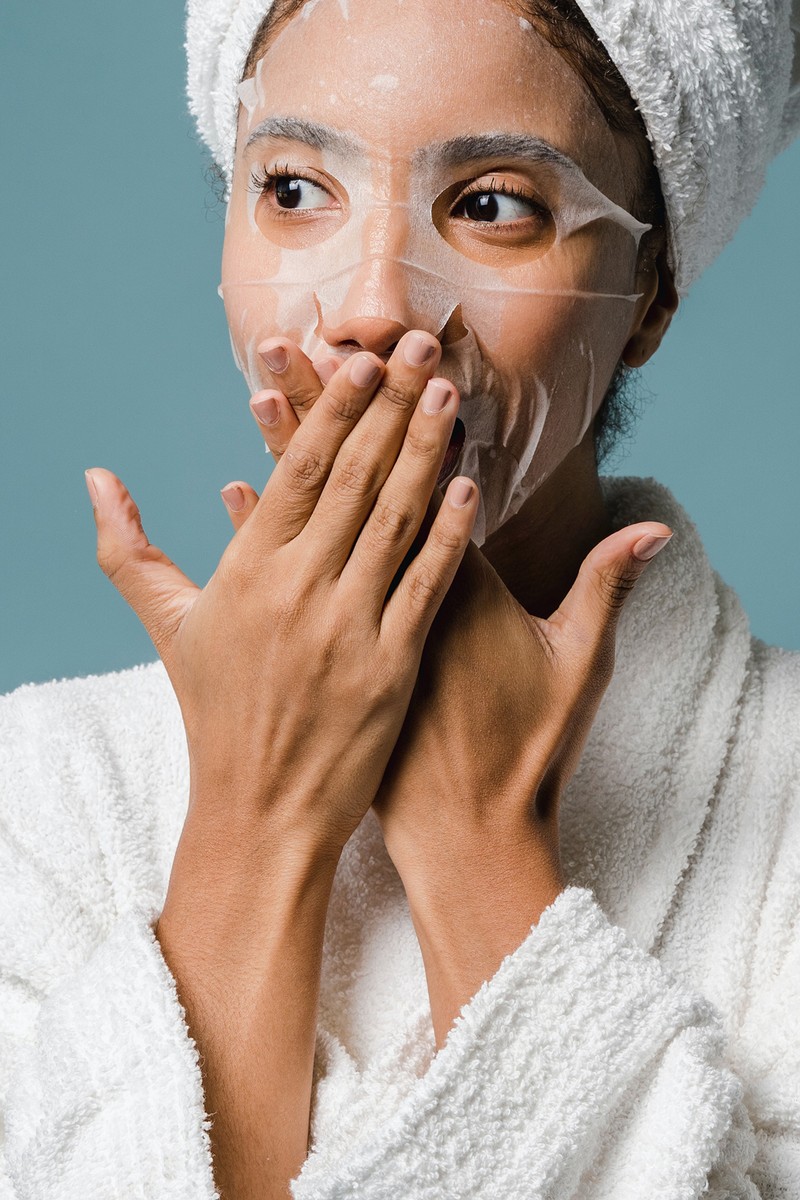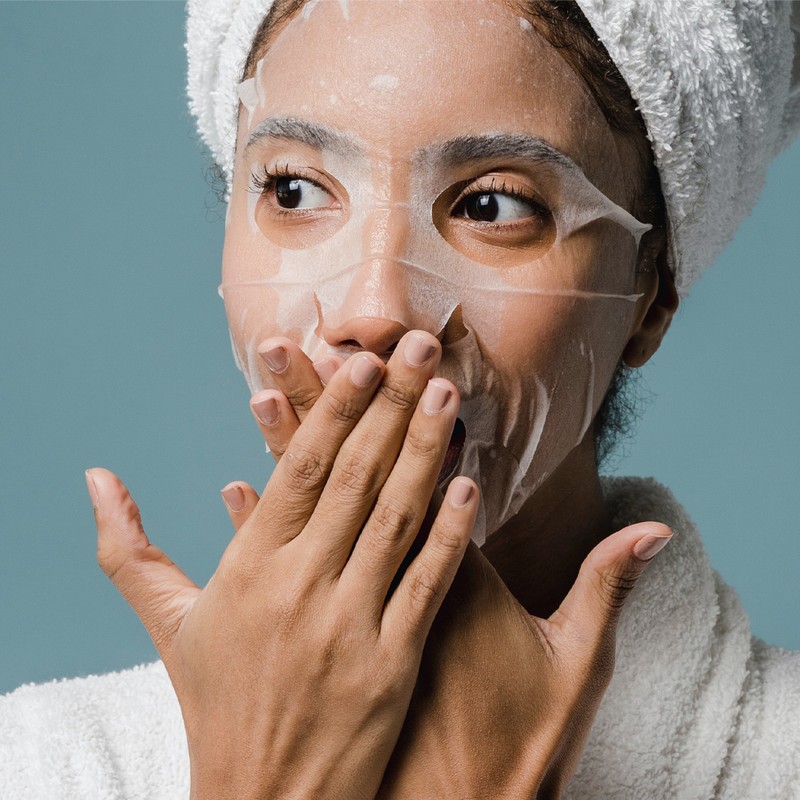The Biggest Skincare Myths Fact-Checked By The Experts
Water Intake Will Boost Your Skin
“This is one of the biggest skin myths – drinking lots of water does not flush out toxins from the skin or encourage hydration. Unfortunately, increasing your water intake won’t make any difference to wrinkles or the smoothness of your skin. There is simply no scientific data to back this up.” – Dr Anjali Mahto, consultant dermatologist, Skin55 Dermatology
Cutting Out Dairy Will Minimise Acne
“Dairy is understood to be acnegenic in some individuals, but not everybody with acne is affected by dairy and, frustratingly, there is no reliable clinical test that can tell you this one way or another. This means the only way to work out if dairy is aggravating your acne is to observe what happens each time you eat or drink dairy over a test period – for example, over four to six weeks. If you are convinced you see a consistent pattern during this time, the next step would be to limit dairy for four to six weeks and see if things get better. It is, however, important not to miss out on essential nutrients so guidance from a doctor or registered nutritionist is sensible. Finally, because dairy is just one of several potential factors contributing to a person’s risk of developing acne (the others being hormones, genes, pollution, stress, skincare habits etc.), it is unusual that dietary adjustments on their own would be sufficient to completely control acne in most cases, and medical management may be needed alongside such changes.” – Dr Justine Kluk, consultant dermatologist
Moisturiser Is Bad For Oily Skin
“This is one of the questions I’m asked most often. A lot of clients with oily skin feel scared of moisturisers and oils, but this shouldn’t be the case. Every skin type needs hydration – that’s a fact. Even those with oiliness need hydration, and actually most products aimed at those prone to excess oil can just strip the skin. The result? The skin overcompensates and produces more oil to replenish that lost hydration. It’s a silly cycle if you don’t actively hydrate it properly in the first place. If you want to minimise shine, just look for a lighter moisturiser, preferably one that contains hyaluronic acid.” – Michaella Bolder, skincare expert
Everyone Should Double Cleanse Daily
“Lots of people think they need to double cleanse but it’s far from essential. In fact, if you do it daily, you’re likely to strip your skin, which can lead to irritation. This is also because cleansing balms can and will dehydrate the skin over time, curtailing your skin’s natural sebum production. This is especially true of those cleansing products that transform from a balm to a lotion. Double cleansing is sometimes useful at night for removing make-up, pollution and dirt, but it certainly shouldn’t become a habit – just occasionally.” – Abigail James, facialist & skincare/wellbeing expert
Spot Squeezing Causes Scarring
“While squeezing and picking spots increase the likelihood of superficial scarring, deeper pitted scarring is actually caused by inflammation and swelling within the spot. This is what damages and ruptures the tissue under the surface of the skin and leads to lingering scars. Some people are much more predisposed to scarring than others, and often it’s down to genetics. If you can, it pays to treat spots as quickly as they appear, to prevent too much inflammation from developing.” – Debbie Thomas, celebrity facialist & skin specialist
Moisturiser Will Make Acne Worse
“One of the fundamental causes of acne is excess oil production by the sebaceous glands. Many people shy away from moisturising their skin if they are prone to spots in the belief that adding further moisture will aggravate the problem. There is, however, growing understanding that maintaining a healthy skin barrier may in fact improve immune functioning in the skin. Moisturising the skin daily can help alleviate side effects and improve compliance with any acne-busting treatment. When picking a moisturiser, looking an oil free or non-comedogenic product is your best bet.” – Justine

Age-Targeted Skincare Is Best
“Skincare should always be chosen based on your specific concerns rather than on your age. Start by identifying your skincare issues (e.g. spots, pigmentation, dryness, fine lines) and then choose ingredients to address them. No two people are going to age in the same way – for example, different ethnicities age in different ways, lifestyle factors such as smoking and alcohol intake all need to be considered – so choosing products solely on age is not a good idea.” – Anjali
Not Cleansing Properly Causes Breakouts
“Breakouts and acne are caused by several factors, including bacteria, hormones, inflammation and sometimes diet. Not washing your face doesn’t technically cause breakouts – though it won’t help, as bacteria and dirt can clog your pores. The cause of acne, however, is often more complex. There isn’t one single miracle cure, so it pays to have a well-rounded view when it comes to treating your own breakouts. You don’t want to be cleansing overzealously either – this will only make matters worse.” – Michaella
Skin Gets Used To Certain Products
People often believe their skincare stops working as their complexion gets used to it – but this isn’t true. Your skin doesn’t get used to certain products and just stop working. Instead, your skin is probably just trying to tell you it needs something else. I always remind clients that it’s a good idea to review your skincare seasonally – roughly every three or four months. Often, the basics stay the same, but you may just need a new serum or active ingredients to treat a certain issue.” – Michaella
Exfoliation Thins The Skin
“Gentle, regular exfoliation – or carefully controlled peels – will remove dead skin safely. This removal of the outermost layers of skin stimulates the deeper skin layers to thicken everything up. The result? A plumper, firmer-looking complexion, as well as a reduction in fine lines and uneven tone. You don’t need to do it every single day, but once or twice a week will be beneficial.” – Debbie
A Higher Percentage Retinol Is Best
“You really don’t need a high-strength retinol in your daily routine. In fact, most skin types get on brilliantly without them. They come with their own set of issues, so should always be used with caution. If you’re keen to try it, start off at a very low dosage – I am talking 0.01% to 0.03%.” – Abigail
Rosacea-Prone Skin Should Avoid Actives
“While those prone to rosacea tend to react more to certain ingredients, the right ones can make a big difference. The key is to introduce them slowly to boost the health and strength of your skin. This in turn can minimise rosacea, as the skin is able to suppress some of the symptoms more effectively. The key is to start with the lowest percentage of whatever you’re using – be it retinoids or niacinamide – and build up slowly from there.” – Debbie
Blackheads Are Caused By Dirt
“Most of the ‘grime’ that comes out of a blackhead is a combination of your own oil mixed with dead skin cells, which includes some pigmented cells. When this balm-like mixture reaches the surface, it oxidises, turning the white/yellow substance a dark brown/black. You continuously produce both oil and skin cells so it is almost impossible to stop blackheads forming if you are prone to them. It’s why no matter what you use or how much you cleanse, you’ll likely still see them form.” – Debbie
DISCLAIMER: We endeavour to always credit the correct original source of every image we use. If you think a credit may be incorrect, please contact us at info@sheerluxe.com.


